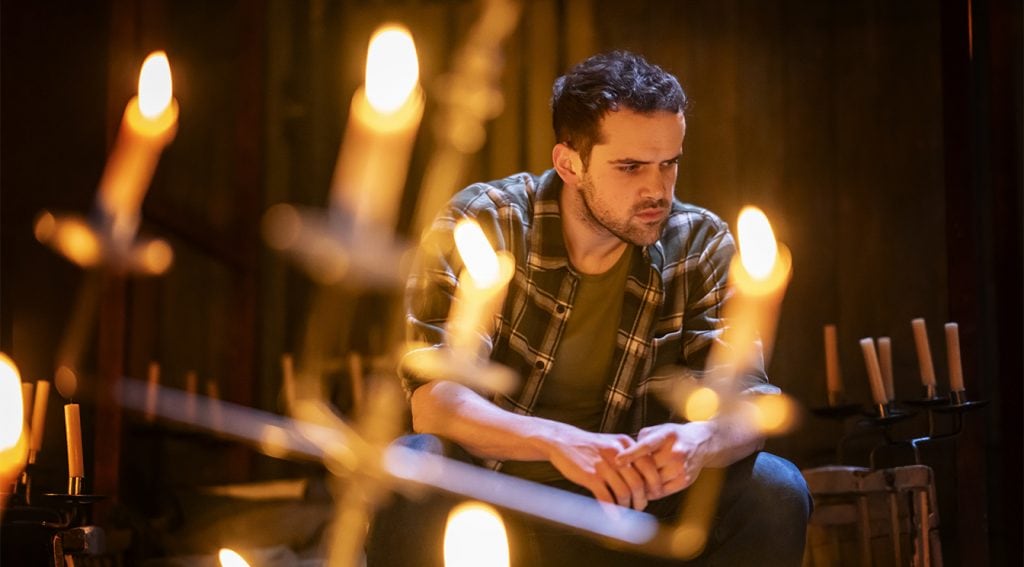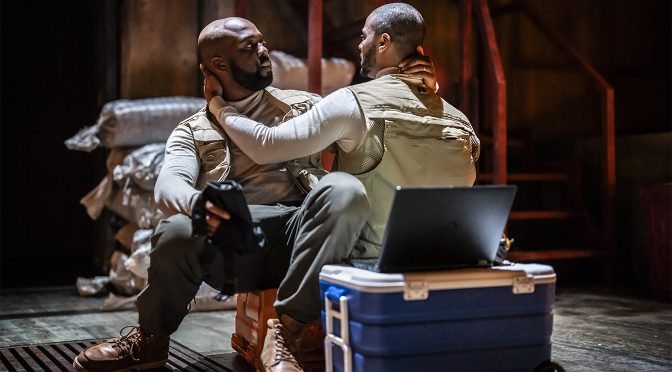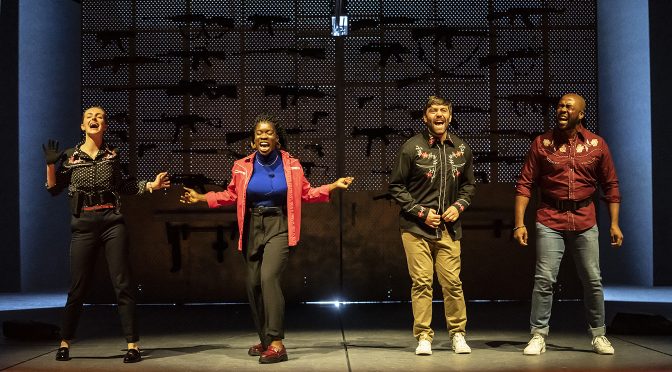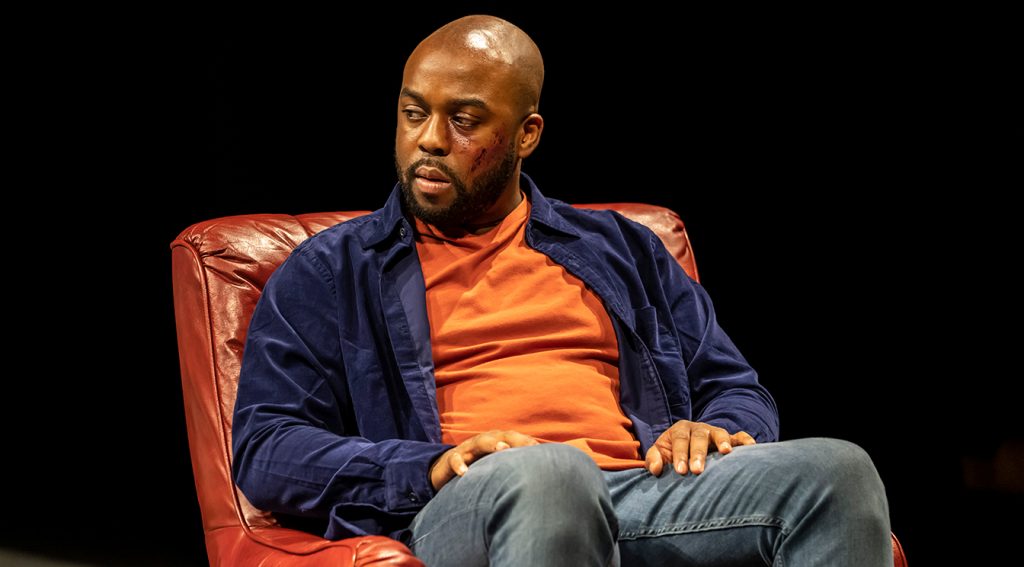Last year, a version of Shakespeare’s tragedy with three actors taking the role of Iago was a theatrical highlight for me. Now we have two performers taking the title role in the play, a move masterminded by director Ola Ince. The idea works well, and the execution is superb. Unfortunately, other changes Ince has made are less successful.
Ken Nwosu takes the lead and is joined by Ira Mandela Siobhan as ‘Subconscious Othello’. It allows Nwosu to highlight references to how calm and controlled his character is – just one insightful touch in an intelligent performance. Meanwhile, what’s going on in Othello’s mind is revealed in a literal fashion. This subconscious self gets to speak, but the role is mostly about movement – the result is stunning. The emotions Siobhan conveys – with astonishing speed – cover huge ground. The murder scene is especially poignant, as this second Othello, wearing the suit from his wedding, is bruised and battered. It really is a brilliant conceit.

Other ideas from Ince are just as bold. But while abridging the play is done well, additions and updates stumble. This Othello is in the Metropolitan Police, he is the ‘guvnor’, and he’s battling a gang. Trouble is, it all comes close to cliché. There’s a similar problem for Cassio when we learn he went to Eton, leading to an unhappy performance from Oli Higginson. Poppy Gilbert, who takes the role of Desdemona, ignores the fact she’s said to be from Chelsea and fares better. As for Iago, Ralph Davis’ performance in the role is powerful and entertaining. But might identifying this “demi-devil” as the only white working-class male around be misconstrued?
Of course, it would be strange if a director didn’t interpret Shakespeare. The intentions here are sincere and the concerns valid. But the implications aren’t explored enough. There’s nothing wrong with changes, but they feel rushed. Maybe more is needed? Not least to iron out incongruities. Religion in the play is ignored – why not get rid of references rather than leaving them there with the potential to distract? And why update only some, and not all, of the language?
Moments when the production jars disappoint, as so much of the action is controlled very well. The excellent music in the show plays a big part, with brilliant compositions by Renell Shaw. And the way police radios pick out the play’s racist phrases is a strong touch. Ince has an approach to scenes without dialogue that is fascinating. You might consider them as akin to montage – swift, insightful and exciting. It’s interesting to find such a cinematic approach in a space like this. But, with such a surfeit of ideas, a lot ends up getting lost.
Until 13 April 2024
Photos by Johan Persson



